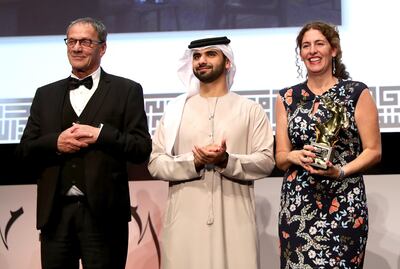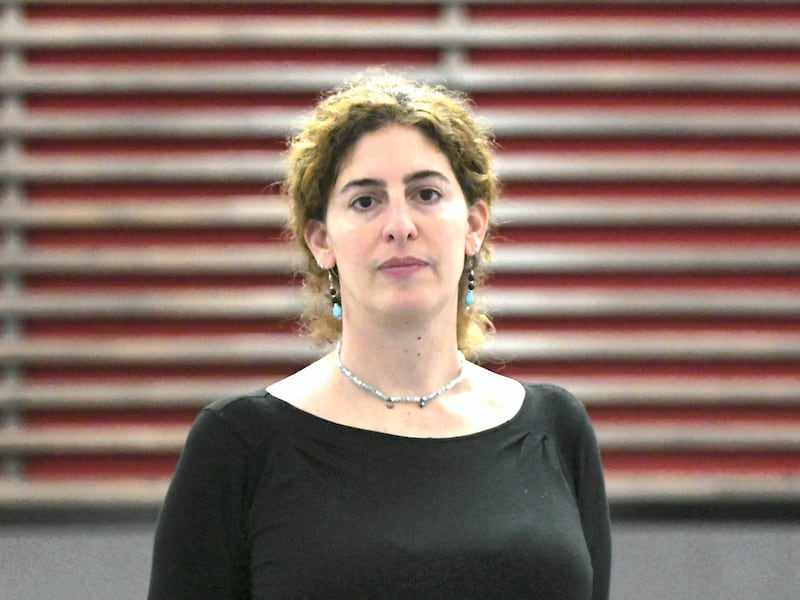German broadcaster ARD has been accused of censorship by Palestinian filmmaker Annemarie Jacir after her film Wajib was removed from its scheduled television slot.
Although it was released in 2017, the wedding comedy was due to have its premiere on German TV in a prime-time slot this Sunday. However, the public broadcaster – one of the world's largest with an annual budget of about €7bn (Dh28bn) and more than 20,000 employees – cancelled it without explanation.
Filmmaker Jacir tells The National: “Honestly, it’s ridiculous. I don’t understand at all.
“German TV just censored the film – it was scheduled to have its German TV premiere on November 19 and they decided to ban it, remove it entirely from their programming.”

In a statement shared with The National, ARD says it plans to screen Wajib at a later date, but removed it "given the recent events in the Middle East".
“In the context of drastic social or global political events, we check whether our planned programme offerings are in line with the current situation,” the ARD statement reads.
“Wajib from 2017 has already been shown to the public at festivals. Given the recent events in the Middle East, we currently think it is not properly placed in the programme due to its narrative perspective. The release of the film Wajib will be postponed to a later date.
“Presenting different perspectives is of utmost importance to us, also with regard to the Middle East conflict. Our news, magazine and special programmes are particularly suitable for this. Our documentary offerings also reflect the different perspectives of the debate.”
The move is the latest case of Palestinian artists having work cancelled in Germany since the Israel-Gaza war began.
Last month, several Arab publishers pulled out of the Frankfurt Book Fair after a planned prize for author Adania Shibli was scrapped, while artist Emily Jacir – the older sister of Jacir – had a planned talk in Berlin cancelled.
Emily did not directly name the event in an Instagram post, although it coincided with her name being removed from the online participant list of the Images of History in Contemporary Art programme at the University of Potsdam.
Jacir's film Wajib – a comic road trip around Nazareth that follows a Palestinian father and his highly westernised son who lives in Italy as they hand-deliver wedding invitations – picked up several awards on its release. It won the Muhr awards for Best Fiction Feature Film and Best Actor (for Mohammad Bakri and Saleh Bakri) at the Dubai International Film Festival 2017, and the Arab Critics Awards for Best Film, Best Screenplay and Best Actor (for Mohammad Bakri) at the Cannes Film Festival in 2018.

Germany is no stranger to Jacir’s work – Wajib was co-produced by Hamburg’s Klinkerfilm, while Hamburg broadcaster NDR, itself a constituent member of the ARD family, also backed the film.
Jacir's second feature, When I Saw You, picked up the Best Asian Film prize at the Berlin International Film Festival in 2012, while her in-production latest The Oblivion Theory picked up the top prize at the Berlinale Co-Production Market in 2021.
Ironically, both of those German-awarded films, unlike the relatively genteel comedy that is Wajib, deal directly with the political situation in Palestine. The former follows freedom fighters among the Palestinian diaspora in Jordan, while the latter reimagines Jose Eduardo Agualusa’s Booker-shortlisted novel A General Theory of Oblivion, a story based around the Angolan War of Independence in the setting of the first intifada in Gaza.






